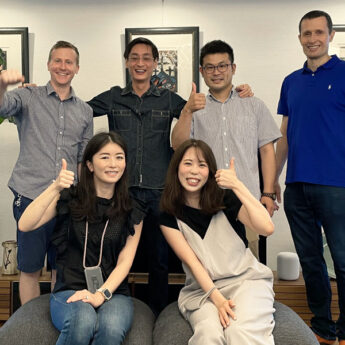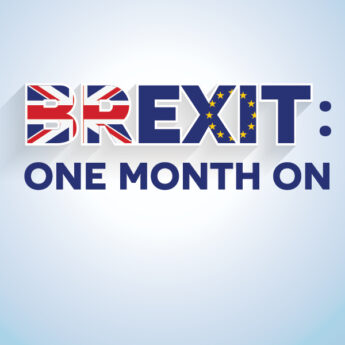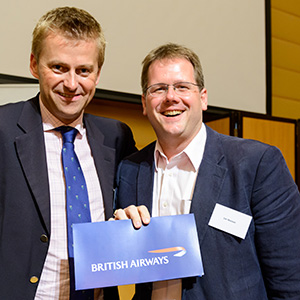London shows the Games can be a positive force for change
With the International Olympic Committee (IOC) vote on 7 September, Tokyo is entering the final lap of the selection process for the 2020 Olympics and Paralympics host city.
At a 24 July joint luncheon—organised by the American Chamber of Commerce in Japan’s (ACCJ) Tokyo 2020 Olympics Task Force and supported by the British Chamber of Commerce in Japan (BCCJ) and Australian and New Zealand Chamber of Commerce in Japan—guests heard Honorary Chairman of Toyota Motor Corporation and Chairman of the Japan Sports Association Fujio Cho talk about Tokyo’s chances of being chosen to host the 2020 Olympics.
Cho, who had made a presentation to the IOC Evaluation Commission in March to voice the support of Japanese firms, talked about what hosting the Games might mean for Japan, including its business community and youth.
As a member of the BCCJ Executive Committee, I was invited to speak about the legacy of the London 2012 Olympic and Paralympic Games. Below is the gist of my speech.
“It has been a year since the London Olympics, but what a great catalyst they were for the UK. With the legacy of London so strong, the BCCJ hopes that Tokyo and Japan can enjoy such a boost if Tokyo is successful in its 2020 bid.
“Tokyo’s legacy would be different to London’s because the two cities have very different starting positions and problems—but what London shows is that the Games can be a positive force for change.
“So what did London achieve? There’s the obvious: the regeneration of the Olympic area and its surroundings. But beyond that, I think two things happened. The first is what the world learned about London and the UK, and the second is what we learned about ourselves.
“During the Olympics, the world came to stay. And it was great that the coverage and attention continued for the Paralympics.
“It isn’t just that London looked fabulous—the beach volleyball in Horseguards Parade, equestrian sports in Greenwich, the marathon passing through Leadenhall Market, and cycling at Hampton Court were all personal favourites.
“It is the update to Britain’s image and contemporary feel to the Games that felt so natural, so positive and so right. VisitBritain hopes to build on this.
“I believe the second catalyst is what we learned about ourselves. We learned we could do it! Right from the journey of the Olympic flame, through the opening ceremony and then the Games and, of course, the Paralympics, we surprised ourselves a bit—it reminded us that we can build and deliver on big projects.
“We also learned a lot about our diverse society and its strengths. The fact that volunteers played such a huge role alongside government and business was truly impressive. I wonder how we can harness that energy and enthusiasm?
“Tokyo might have the same opportunity! And this is very exciting for so many British people, firms and organisations here.
“Many of us have deep roots in Japan and feel ourselves part of the country and community. We’re as keen for the bid to succeed as we were for London, and we want to be part of a successful Games. We’ve got the legacy of London from which to learn, and all of the other skills and expertise to contribute.
“Good luck on 7 September!”






